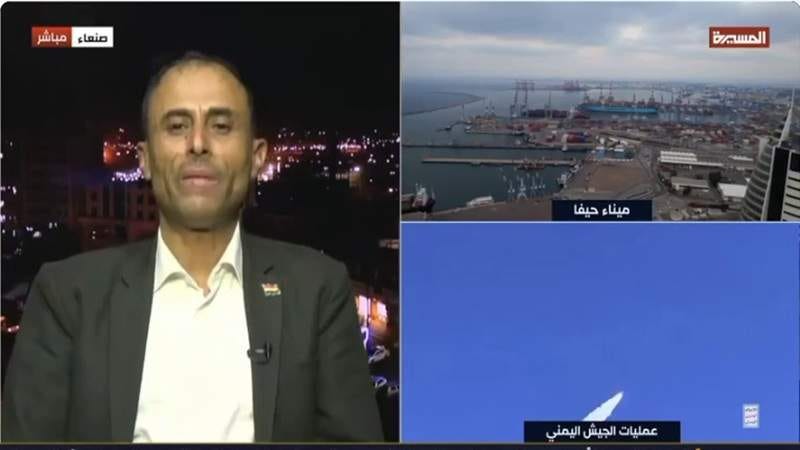Yemen’s Strategic Threat to Haifa Port: A Ticking Time Bomb for the Zionist Entity
A Yemeni missile strike on Haifa would rewrite the economic equation for the occupation. The port contains refineries responsible for supplying approximately 60% of the regime’s oil and gas needs
Yemen, PUREWILAYAH.COM - The strategic Haifa Port, now the primary lifeline of the Zionist entity, is increasingly being viewed as a vast minefield—laden with fuel, petrochemicals, and explosive materials—that threatens every vital sector of the occupation.
It contains critical installations for oil, gas, petrochemicals, ammonia, and other highly flammable substances, making it an immense vulnerability.
Even a single missile or heavy projectile striking one of these sensitive facilities could ignite a devastating chain reaction of fires and explosions.
The port has long been considered a nightmare scenario by Zionist authorities, especially since the days of Hezbollah’s missile campaigns during the war on Lebanon.
Today, that fear has escalated dramatically with Yemen’s armed forces bringing the threat back into sharp focus—this time with greater seriousness and credibility. The message from Sanaa is clear: when Yemen speaks, it acts.
Economic Collapse Looms as Yemen’s Blockade Shifts Dependence to Haifa
Economic expert Rashid Al-Haddad, speaking to Al-Masirah, stated that Yemen’s blockade of the Port of Umm Al-Rashrash (Eilat) has pushed the Zionist regime to rely almost entirely on Haifa Port.
This dependency has turned Haifa into the central hub for the entity’s economic, military, and industrial operations.
According to Al-Haddad, a Yemeni missile strike on Haifa would rewrite the economic equation for the occupation. The port contains refineries responsible for supplying approximately 60% of the regime’s oil and gas needs. Disrupting or destroying those facilities would trigger a deep fuel crisis, blackouts, and halt operations in surrounding factories and power plants.
Moreover, Haifa’s shutdown would paralyze food supply chains, as the entity depends on imports from Europe and the United States via the Mediterranean. Al-Haddad described the potential port blockade as equivalent to “cutting the umbilical cord between the Zionist entity and the West, including America.”
Total Economic Strangulation: Inflation, Job Loss, and Military Paralysis
Al-Haddad emphasized that a strike or blockade on Haifa Port would have catastrophic ripple effects across all sectors of the Zionist economy.
Cities throughout occupied Palestine would experience immediate shortages in goods, steep price hikes, and soaring inflation.
Thousands of workers would face layoffs—just as occurred at Umm Al-Rashrash—reducing domestic production and weakening the economy.
He further explained that during previous operations by Yemeni, Lebanese, and Iraqi forces, the Zionist regime resorted to covert channels, relying on UAE and Turkish imports to cover basic food needs. If Haifa Port is disabled, such contingency options may no longer suffice.
In addition to the economic collapse, Al-Haddad warned that military-industrial facilities would suffer. With Haifa serving as a critical artery for weapons import and export, any disruption would cripple arms production and delay arms deals, potentially halting vital military operations.
Al-Haddad concluded that by threatening Haifa Port, Yemen has imposed long-term strategic pressure on the Zionist enemy.
Whether or not an immediate strike occurs, the mere fact that the port is now within Yemen’s declared range has forced the enemy to rethink its strategy and draw closer to a state of deterrence. The objective remains clear: an end to the aggression and blockade against the besieged people of Gaza. (PW)
Source: Al-Masirah


